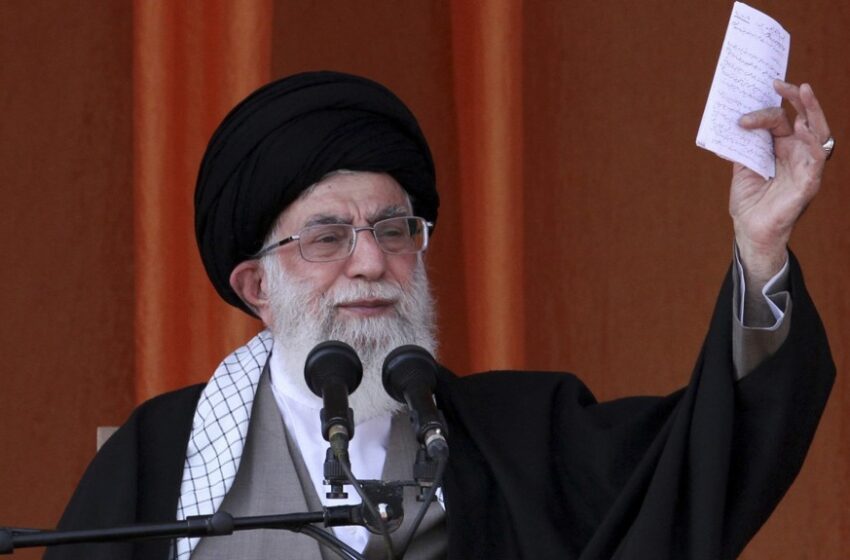
So How Exactly Does the Iran-Israel Conflict Affect Palestinians?
On April 1, Israel attacked the Iranian embassy in Syria with the intention of assassinating a senior Iranian military leader, Mohammad Reza Zahedi, the commander for Syria and Lebanon of Iran’s elite Quds Force, a branch of the Islamic Revolutionary Guards Corps. The planning that ignited the Iran-Israel conflict we see had started months earlier, and Israel warned the United States less than 48 hours before they completed the attack. Iran’s response came with extensive warnings to the United States and the international community and was almost completely intercepted by Israeli defenses as a result.
The Biden-Harris administration has begun to appear to take a more confrontational approach to Israeli aggression, starting on February 8, when Biden called Israel’s actions in Gaza “over the top.” This continued on February 15 when the White House stated that Israel needed a clear plan to protect civilians if they were going to invade Rafah. On February 20, the White House memorably vetoed a ceasefire resolution for which the entire Security Council voted unanimously in favor, with the exception of Britain which abstained. On March 2, Harris called for a ceasefire.
On March 26, a ceasefire resolution was finally passed in the UN with the following demands: 1) “an immediate ceasefire for the month of Ramadan respected by all parties leading to a lasting sustainable ceasefire;” 2) “the immediate and unconditional release of all hostages;” and 3) stresses the “urgent need to expand the flow of humanitarian assistance to and reinforce the protection of civilians in the entire Gaza Strip.”
The resolution was tabled by the 10 non-permanent members of the Security Council, and passed by a vote of 14-0, with a notable abstention from the United States.
Within just a few days, Israel attacked the Iranian embassy, and Iran declared they would retaliate. And they did, with the first direct attack on Israel following a decades-long shadow war through proxies. Notably, since that date, the press has largely lost sight of the ceasefire resolution in the fears of an escalation to a regional conflict.
It is easy to see that this change of tone from pressure for a ceasefire to preventing regional war was a deliberate move by Israel to draw attention from the ceasefire resolution, change the conversation, and threaten regional stability as a smokescreen for their plans to escalate the war in Gaza and invade Rafah. Multiple media outlets now report the attack on Rafah appears almost inevitable. One million Palestinians are sheltered there with basically nowhere to escape to for shelter or safety.
The United States, after beginning to change its tone about the need to protect civilians, just passed a bill to provide another $15 billion in aid to Israel with no strings attached and Israel’s response was that their alliance with the United States is “iron-clad.”
There have increasingly been calls to stop military aid to Israel due to the fact that Israel is blocking humanitarian aid to civilians in Gaza. Section 620I of the Foreign Assistance Act prohibits security assistance to any government that restricts the delivery of U.S. humanitarian aid.
In light of extensive evidence that Israel has blocked humanitarian aid, on April 27, Sarah Leah Whitson, the Executive Director of Democracy for the Arab World Now (DAWN) stated, “For too long, the Biden administration has breached or ignored U.S. laws that require the suspension of aid to an abusive regime like Israel, fueling Israeli belligerence and rewarding its atrocities. It’s time for real consequences.”
The basic strategy for Israel to deflect attention from its genocide in Gaza through threatening regional escalation seems to have completely succeeded. The Biden-Harris administration has basically heeled to Israel and lost all nerve to stand up for the international calls for intervention on behalf of the Palestinian people in Gaza. The ceasefire has disappeared from U.S. news, and now the United States has agreed to an enormous aid package. As Bernie Sanders stated, the only Democrat to vote against the approval of more military aid for Israel in light of their current actions:
“Israel’s blockade pushed the United States to extreme measures, including air-dropping supplies and the construction of an emergency pier, in order to get food to starving people. The President and the United States did the right thing – children are starving, and we are trying to airdrop aid and build a pier. In other words, we’re now in an absurd situation where Israel is using U.S. military assistance to block the delivery of U.S. humanitarian aid to Palestinians.”
Sanders’s remarks were reflective of the views of the majority of the American people. And the White House should listen, not just because it will make the difference in whether Biden-Harris will win in November but because it is the legal and ethical decision for this country to make.
Follow Muslim Girl across all social media platforms for more updates on the political situation across the Middle East and beyond.




